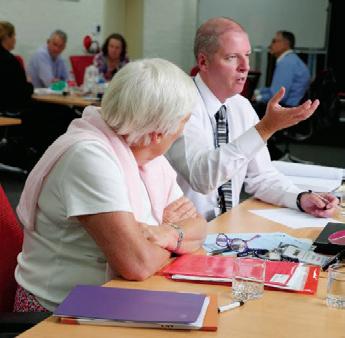PERSONAL SAFETY
Personal violence is significantly under reported to police. Personal crime offenders target people they perceive as vulnerable and likely to offer the least resistance. When out and about • Appear confident, self assured and comfortable in your surroundings through strong, positive body language. Look ‘streetwise’ rather than fearful. • Be aware of your surrounds and alert to what is going on around you. • Listen to, trust and act on your instincts. If you sense danger from someone, something or a place, immediately remove yourself to a safer place. • Do what you think will best preserve your safety. Options include running away, screaming, negotiating with the attacker, calling for assistance, and using physical self defence as a last resort.
hones or Wearing headp obile phone using your m king can while out wal areness reduce your aw pening of what is hap d make around you an erable to you more vuln an attack.
• Don’t put up a fight for your bag or other possessions. If someone threatens you and tries to steal your belongings, the safest option is to surrender the items. Take note of the offender’s description and immediately report the incident to police.
If you are a victim of any form of assault, you are encouraged to report the incident to police. If you observe suspicious or threatening behaviour, call police. You can dial 000 (triple zero) in an emergency, even if your phone is locked. If safe to do so, respond to any calls for assistance. Assisting others in need is important and may prevent or stop an assault from escalating.
16
NHWA JOURNAL APRIL 2016
Neighbourhood Watch Australasia Celebrating
10 Years













